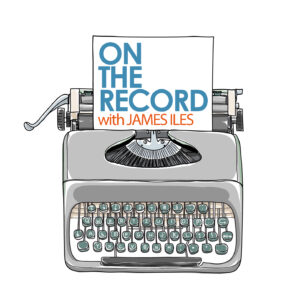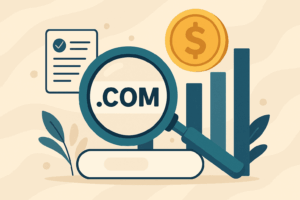On the Record: Troop.com

In early 2021, individual investors grouped together to affect major stock market changes as gaming company GameStop’s shares skyrocketed.
While the media cycle focused on the rising stock prices, one entrepreneur looked beyond that and saw the power that a group of individual investors can possess when adequately mobilized.
The GameStop movement prompted Felix Tabary to co-found Troop, a company mobilizing individual shareholders to effect change in major companies. Previously, it took a significant shareholder such as a pension fund or a sovereign wealth fund to effect change directly.
Troop’s gigantic mission needs a domain name to match its ambitions. In January 2022, the company acquired Troop.com. Here, I chat with Felix about Troop and the acquisition of Troop.com
Can you tell us about your entrepreneurial journey leading up to launching Troop?
I was born and raised in France, then came to the US for university, and like most people who went to my school, we went down to New York looking for a job in finance.
I ended up working for Bloomberg for a number of years. The biggest thing I took away from Bloomberg is who wields and exercises real power and influence on the stock market.
The people in the market who have amassed the greatest amount of assets that they are managing on behalf of the greatest number of people have the greatest ability to impact and influence the markets in any way, shape, or form.
If the sovereign wealth fund of a country decides they’re not investing in Facebook anymore, for example, it’s not you or me selling a couple of shares. It’s billions of dollars flowing out of Facebook stock and moving into something else. And this happens all the time.
I then worked for a couple of other startups, but I realized I didn’t really like working for others anymore.
What accelerated that transition was when the CEO of a company I had worked at, who was 26, had just finished raising a $69 million Series B round. It made me realize; maybe I should give this a shot.
What prompted you to launch Troop?
In early 2021, the GameStop moment was happening. What was most interesting about that event wasn’t the media hype when the stock price peaked, but more so what happened after.
A bunch of people held the stocks and didn’t sell. the vast majority of people who held their stocks showed up to GameStop’s annual shareholders’ meeting to vote using the stocks they owned.
I figured why couldn’t we do more of this, and for whom might this be interesting? So we decided to go to a couple of big hedge funds and asked for their thoughts about what happened with GameStop.
What if people did this more often? What if individuals showed up at the annual shareholders’ meetings? Would that be interesting?
Most hedge funds said that it would be really scary, but they also said it might be fascinating if you find a way to incentivize people to do this.
How did you choose the Troop name?
The whole idea of the movement of GameStop was fun to observe. It taught us a lot of stuff. One of the funniest takeaways was this idiom or expression used all the time, which is “apes together strong”, referring to everyone in the movement as apes and implying that apes together can do a lot of things.
We were looking for a name of our product, and it turns out that the name of a group of monkeys is a troop.
So that’s how we chose the name.
Would it be fair to say that your ultimate goal for Troop is to activate many base-level individual investors to achieve a collective voice?
Yeah, basically, our objective is twofold.
One is to lower the barrier of entry to shareholder activism. It needs to be something that people can participate in as easily as possible, which means improving the user experience and the user interface, but it also comes with a deep educational focus as well.
I need to discuss the domain I own!
Another part is the ability for original shareholders to collectively have a seat at the table. Individually, it’s tough for them to have any kind of voice or presence at shareholder meetings. If you collectivize, you go from zero percent of the company to 30%. When a 30% partial owner shows up, everybody pays attention.
How are you acquiring your user base?
There are a few methods we’re exploring. First and foremost, there’s a swathe of the population looking for more tangible, more direct ways of aligning their values with their investments. I think, for the most part, the crowd will find us.
The second way is thinking about it more in comparison with grassroots voter registration efforts: the hyper-localized single issue and single community-based outreach.
The final method is going to be through some incentives. The first is incentivizing people financially to put their unused shares to work. So if what it takes is us giving you free shares, some kind of cryptocurrency, or even just a cash payment to convince you to bring your pre-existing shares to the fight, we’ll do that.
We’re also going to reward people for bringing other people to the platform with shares to contribute to an ongoing activist fight.
From a domain perspective, am I right in thinking that you started on TroopNow.com and you moved to Troop.org?
Yes, that’s correct.
Why was it so attractive to switch to Troop.org?
The simple answer is that the alternative was a .co – and we did a very brief anecdotal market study with a few people who were working at companies that were using .co.
The feedback was incredibly consistent, which is that they wish that their company owners had gone with .com and paid the extra for it or gone with something completely different.
Because in the US, most people believe that .co is just a spelling mistake.
The other reason for .org is that we’re going to use Troop.org to host the educational franchise of the company.
Moving onto Troop.com. How did you acquire that, and when did it come onto your radar?
We didn’t look too far when we were fishing around for the Troop.org domain. We were mostly just on GoDaddy.
The first time we looked at domains was April/May of 2021. We quickly decided to go with TroopNow.com and eventually bought Troop.org, which was available for $5,000-$6,000, which didn’t feel like a ton, so we went with that.
Later, we went through GoDaddy’s brokers to contact Troop.com’s owners. We got to a point where the broker was able to connect us with them.
Our broker made a passionate plea to the previous owner of Troop.com, describing our project. That worked, and we’re super grateful to the broker for helping us get the domain.
We’re also super grateful that the previous owner consented to sell us their domain, and we hope to make the best of it.
Have there been any noticeable benefits of owning Troop.com so far?
We noticed that people seem less confused about whether we are a for-profit organization or not.
Before we moved from Troop.org to Troop.com, people felt like they’d been tricked with NGO-style language and calls to action on our .org domain, then all of a sudden, the concept of working with hedge funds came up, and I think there was some confusion there. Moving to .com cleared that up for most people.
So did the .org negatively impact people’s perception of you?
It did, but in a way that we did not expect. We figured that .org would just lend some legitimacy, and it did for a bit initially, especially with venture capital people. For them, it was a little less weird that troopnow.com.
On the consumer side, people were confused about whether we were a for-profit organization.
Is Troop.com an attraction for potential VC investors?
It’s a pleasant surprise for them at the end of the day, but it’s not their central focus. Troop.com is a nice five-letter domain, and I feel like we’re sitting on something pretty valuable.
How much did you pay for Troop.com?
Surprisingly, the .com ended up being quoted to us at two and a half times more than the .co, which we inquired about in 2021.
It made me realize that this is a deal that we would never get again. It was a five-figure purchase for us.
On the future of Troop, how do you see the company developing from here?
So I think the first step is to get people just to join. Once someone creates an account on Troop.com, they’ll be invited to connect their brokerage accounts to the platform.
The second step will be to get people to start contributing their shares to ongoing campaigns. For the most part, those campaigns will largely be spearheaded or captained by professional activists, hedge funds, and shareholder advocacy groups.
In time, we would like to get to a point where individuals collectively can write or sponsor a shareholder resolution and bring that to the annual shareholder meeting, effectively running a people at a distributed activist investing effort.
We’re about a year away from that.
It sounds like the Troop digital platform will be very important to your business operation. Do you think Troop.com is going to be an influential place?
I think so, yeah. If things go according to plan, there’s a world in which Troop.com becomes the de facto place where everyday investors and retail shareholders just read up about ongoing activism and just ongoing discussions of companies so that they can get informed about their investments in a way that I think the vast majority of finance companies currently are just not doing it.
—
Thanks to Felix for taking part in On the Record. To find out more about Troop, visit Troop or follow the company on Twitter.
This interview has been edited for clarity.



